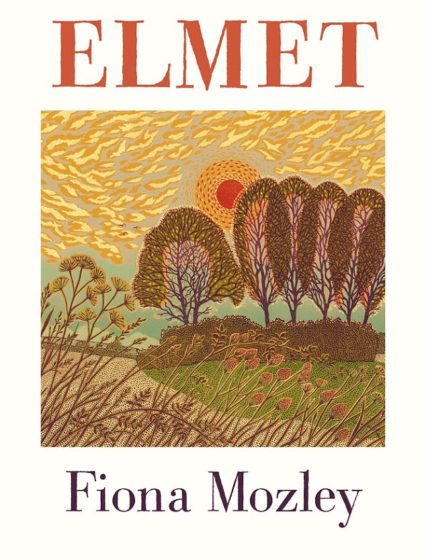Rabeea Saleem reviews Fiona Mozley’s Elmet, a poetic and captivating depiction of life off the grid, as siblings Danny and Cathy learn self-reliance.
In a list saturated with literary heavyweights and previous winners, Elmet is a dark horse in the Booker long list this year. Debut novel of 29 year old bookseller Fiona Mozley, Elmet is an immersive rural family saga.
 Danny and Cathy used to go to school when they were younger but not anymore. They knew their mother but it has been a long time since she disappeared. They live with their dad in a house he has built for them with his bare hands on an ash copse near the East Coast rail line. The epigraph from Ted Hughes’ “Remains of Elmet” notes that this location was “the last independent Celtic kingdom in England’ which acted as a “sanctuary for refugees from the law”. This line perfectly encapsulates the lifestyle of the protagonists. They live in a haven where the rules of law don’t apply and they are free from all the modicum of modern civilization.
Danny and Cathy used to go to school when they were younger but not anymore. They knew their mother but it has been a long time since she disappeared. They live with their dad in a house he has built for them with his bare hands on an ash copse near the East Coast rail line. The epigraph from Ted Hughes’ “Remains of Elmet” notes that this location was “the last independent Celtic kingdom in England’ which acted as a “sanctuary for refugees from the law”. This line perfectly encapsulates the lifestyle of the protagonists. They live in a haven where the rules of law don’t apply and they are free from all the modicum of modern civilization.
They have an unusual life with their daddy, John, who disappears for days on end leaving them to fend for themselves. He is a bare-knuckle fighter and for all his imposing brawn, he is a compassionate if fiercely protective father. Elmet is narrated through the unvarnished point of view of Danny who is weirdly defensive about his daddy. He is in awe of his sister, who is their dad’s natural heir, in the truest sense when it comes to disposition and intrinsic nature. She has his willpower and love for the outdoors while he mostly trails behind,often not to join her but merely to observe her. In the beginning of the book, he casually mentions “ I could not take my eyes off her. I was ever her witness.” which precisely abbreviates his relationship with his sister. They are not equals in the way some siblings are; she is clearly the leader. What is also interesting is the expression of gender roles between the siblings who have more or less grown up in the wilderness. Danny has long hair, wears tight clothes, likes cooking – qualities that are generally considered as effeminate in society. Elmet depicts how gender roles are not predetermined and are there for the taking, in the absence of conventional norms.
Daddy makes a living from fist-fighting and getting hired to beat people up for settling scores. He makes his kids live off the grid to avoid getting embroiled in any sticky situation because of his dodgy work.
“He wanted to strengthen us against the dark things in the world. The more we knew of it, the better we would be prepared. And yet there was nothing of the world in our lives, only stories of it.”
Inevitably, the world this family is so keen to avoid comes knocking on the door in the form of Mr Price, a powerful local landlord. According to the law, which John doesn’t accept, Price owns the land on which he is building the house. Long simmering tensions in the community come to a head with this conflict. This hostility quickly escalates to a staggering climax from which none of them will come away unscathed. This dispute acts as a parable for the clash between the labor and land owning class. The plot consistently draws contrast between the old world and the new world in intricate detail. Without giving anything away, I will only say that since the overall pace of the novel is languid and lyrical, the sudden drama (and gore) of the climax meshes somewhat unevenly with the rest of the book.
Having said that, the writing is poetic and Mozley has a piercing turn of phrase and the story boasts of many keen observations about people. Since the narrator is a child, there are disarmingly candid quips about human nature. I specially loved how Mozley sketched such vivid characters in her protagonists while still managing to retain an air of mystery around them. Elmet has an elementary plot but is a gorgeously written novel which evokes the ethereality of a bygone era.










